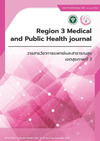Expert Buddhist Counselors’ Experiences in Understanding of the Client’s Problems
Keywords:
understanding of the client’s problems, Buddhist counselor, qualitative researchAbstract
This qualitative study investigates the experiences of Buddhist counselors in understanding clients’ problems through the framework of Interpretative Phenomenological Analysis (IPA). Six expert counselors specializing in Buddhist Counseling were selected as key informants. Data were collected through semi-structured, in-depth interviews. The analysis revealed three primary themes in the counselors’ experiences: (1) Facilitating awareness of the problem. This theme involves cultivating awareness of the psychological distress through dialogue, active listening, and reflection on existing problems, leading to insights into interconnected issues. (2) Facilitating the recognition of the root causes of problems. This process includes developing an understanding of the underlying causes, resulting in insights and empowering clients to find their own solutions. (3) Integrating Dhamma principles to help clients comprehend the interdependent nature of phenomena. This approach fosters insight, acceptance of life’s circumstances, and ultimately alleviates psychological distress.
Keywords: understanding of the client’s problems, Buddhist counselor, qualitative research
References
ดลดาว ปูรณานนท์. ผลของการปรึกษาเชิงจิตวิทยาแนวพุทธแบบกลุ่มต่อการเพิ่มพูน สันติภาวะโดยมีเมตตาเป็นตัวแปรสื่อ [วิทยานิพนธ์ ศิลปศาสตรดุษฎีบัณฑิต]. กรุงเทพฯ: จุฬาลงกรณ์มหาวิทยาลัย; 2551.
ธารีวรรณ เทียมเมฆ. ผลของกลุ่มจิตวิทยาพัฒนาตนและการปรึกษาแนวพุทธที่มีต่อความสันโดษของนักศึกษามหาวิทยาลัย [วิทยานิพนธ์ ศิลปศาสตรมหาบัณฑิต]. กรุงเทพฯ: จุฬาลงกรณ์มหาวิทยาลัย; 2551.
ธีรวรรณ ธีระพงษ์. ผลของกลุ่มพัฒนาตนและการปรึกษาเชิงจิตวิทยาแนวพุทธเน้นศีลและปัญญาต่อสัมพันธภาพการปรึกษาเชิงจิตวิทยา และผลเนื่องต่อความพึงพอใจของผู้รับบริการ [วิทยานิพนธ์ ปริญญาดุษฎีบัณฑิต]. กรุงเทพฯ: จุฬาลงกรณ์มหาวิทยาลัย; 2549.
พระธรรมปิฎก (ป.อ.ปยุตฺโต). พุทธธรรม. พิมพ์ครั้งที่ 7. กรุงเทพฯ: มหาจุฬาลงกรณราชวิทยาลัย; 2561.
เพริศพรรณ แดนศิลป์. ผลของการปรึกษาเชิงจิตวิทยาแบบกลุ่มโยนิโสมนสิการที่มีต่อปัญญาในภาวะความสัมพันธ์เชื่อมโยงและภาวะความเปลี่ยนแปลง [วิทยานิพนธ์ ปริญญาดุษฎีบัณฑิต]. กรุงเทพฯ: จุฬาลงกรณ์มหาวิทยาลัย; 2550.
ยุวดี เมืองไทย. ผลของกลุ่มจิตวิทยาพัฒนาตนและการปรึกษาแนวพุทธต่อสุขภาวะทางจิตของผู้ป่วยยาเสพติดที่อยู่ในระยะฟื้นฟูสมรรถภาพ [วิทยานิพนธ์ ศิลปศาสตรมหาบัณฑิต]. กรุงเทพฯ: จุฬาลงกรณ์มหาวิทยาลัย; 2551.
สุภาพร ประดับสมุทร. การเกิดปัญญาในกระบวนการปรึกษาเชิงจิตวิทยาแนวพุทธ [วิทยานิพนธ์ ศิลปศาสตรดุษฎีบัณฑิต]. กรุงเทพฯ: จุฬาลงกรณ์มหาวิทยาลัย; 2552.
โสรีช์ โพธิแก้ว. การสังเคราะห์หลักอริยสัจ 4 สู่กระบวนการปรึกษาเชิงจิตวิทยา/จิตรักษา เพื่อการพัฒนา รักษา และเยียวยาชีวิตจิตใจ: แนวคิด แนวทาง ประสบการณ์ และงานวิจัย [เอกสารประกอบการเรียนการสอน]; 2553.
Hill C, O’Brien K. Helping skills: Facilitating exploration, insight, and action. Washington, DC: American Psychological Association; 2014.
Smith J, Flowers P, Larkin M. Interpretative phenomenological analysis: theory, method and research. London: Sage Publication; 2009.
Downloads
Published
How to Cite
Issue
Section
License
Copyright (c) 2024 Region 3 Medical and Public Health Journal - วารสารวิชาการแพทย์และสาธารณสุข เขตสุขภาพที่ 3

This work is licensed under a Creative Commons Attribution-NonCommercial-NoDerivatives 4.0 International License.



